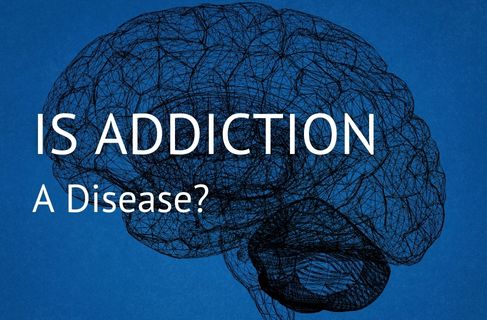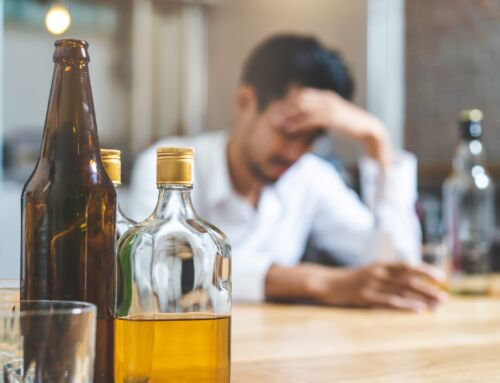There is an ongoing debate surrounding addiction. For years, due to extensive scientific and medical research, addiction has been classified as a disease. Both the American Medical Association (AMA) and the American Society of Addiction Medicine (ASAM) classify addiction as a disease impacting the brain and the body. As a brain disease, addiction disrupts and dysregulates regions of the brain responsible for reward, motivation, learning, judgement, and memory. This compulsive brain disorder hijacks regions of the brain and disrupts rational thinking, decision-making, and pleasure seeking. Therefore, once an individual has crossed a certain line, they can no longer voluntarily choose to not use drugs or alcohol. This means that using substances isn’t a choice, but more so an involuntary response and lack of control.
There are many people, for both good reasons and bad, who take issue with addiction being classified as a disease. Even though it has been proven by science, there is still skepticism. Some of these people are understandable in their belief. For example, someone that has been harmed again and again by the behaviors of someone in active addiction may have a very difficult time seeing the person as someone suffering from a disease. They may have been stolen from, physically or emotionally harmed, lied to, or suffered from other situations, most likely from someone they love or are close to in friendship. They see the behaviors and equate them to the character of the person. They may think, “This person is consistently treating me bad, therefore they are a bad person.” They see addiction as a moral failing, character defect, or weakness. They had a difficult time separating the person suffering with addiction from the behaviors exhibited by the person in active addiction. It is hard to judge someone for thinking or feeling this way. Other times, people that have used substances find it hard to fathom why others cannot stop using when they themselves were able to stop or moderate. They think the person is weak willed and should just be able to stop on their own. However, not everyone is the same and drugs and alcohol do not impact everyone in the same way. Addiction is a complex disease caused by a combination of behavioral, psychological, environmental, and biological factors. Additionally, a person may also have specific genetic risk factors that make it likely that they will develop a substance use disorder or addiction, when someone without those risk factors may not.
Stigma also plays a big role in why some people question if addiction really is a disease. The dictionary defines stigma as “a mark of disgrace associated with a particular circumstance, quality, or person.” Viewed as it relates to addiction, stigma means when a person is viewed by others in a negative way due to having a substance use disorder. Stigma means that others are viewing those with an addiction with a negative attitude or belief; that others have the attitude or belief that a person with addiction is a bad or morally corrupt person, or perhaps that they are weak for suffering from addiction. Stigma means that addiction is viewed in a negative way (some examples could be “all people addicted to drugs are liars” or “all people with addiction do things like steal”), and therefore because addiction is seen as a negative personal trait or characteristic, the individual suffering from addiction is a bad person. Many people impacted by the stigma of addiction, who think addiction is bad and therefore the person suffering from addiction is a bad person or has poor character, often believe addiction is not a disease, but rather a choice being made by the person who is of poor moral character and that is weak-willed. These people often see that a person suffering from addiction cannot overcome their addiction to take care of a child or to save a marriage or to keep a job, and think that they are a bad person because a good person would CHOOSE to overcome their addiction for these reasons. What they are missing is that these people, due to their brain chemistry, are often not using drugs or drinking because they are choosing to, but often using drugs and drinking against their will, and that the person suffering from addiction is using despite an overwhelming desire to stop for those very reasons.
It is also important to point out that while addiction is a disease, the actions and behaviors of someone suffering from an addiction may be more understandable but that does not mean that someone should not be held accountable for their actions in active addiction. One of the things that angers people that do not believe addiction is a disease the most is when people in active addiction feel that they shouldn’t be held accountable or responsible for their behaviors or actions in active addiction due to suffering from an illness. That certainly is not the case. If someone harms another person or breaks the law due to actions or behaviors in active addiction, the addiction is not the scapegoat. It may make the actions or behaviors most understandable, but it does not mean that a person suffering from the disease of addiction gets a free pass to blame their actions on their illness.
Addiction is a progressive, chronic, potentially fatal illness. While not all individuals that deal with a substance use disorder fall into that category, mean people that suffer from moderate to severe substance use disorder will develop an addiction, which is typically fatal if left untreated. The good news is that addiction is not only treatable and that recovery from addiction is possible, but that for an individual that engages in long-term addiction treatment, recovery is not just possible but probable. Once sobriety and recovery from addiction is achieve through high-quality, comprehensive, long-term treatment and ongoing recovery support, the disease of addiction can be manageable like other chronic illnesses, and the hope for a better life can easily become a reality. Many people in the 12-Step Fellowship rooms of recovery talk about recovery being “beyond my wildest dreams” and, for most people that find recovery from addiction, that description is absolutely the truth.
If you or someone you know needs help for addiction or co-occurring disorder issues, please give us a call. Maryland Addiction Recovery Center offers the most comprehensive dual diagnosis addiction treatment in the Mid-Atlantic area. If we aren’t the best fit for you or your loved one, we will take the necessary time to work with you to find a treatment center or provider that better fits your needs. Please give us a call at (410) 773-0500 or email our team at info@marylandaddictionrecovery.com. For more information on all of our drug addiction, alcohol addiction and co-occurring disorder services and recovery resources, please visit our web site at www.marylandaddictionrecovery.com.

Table of Contents




